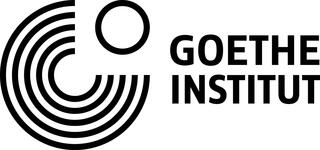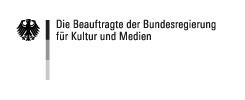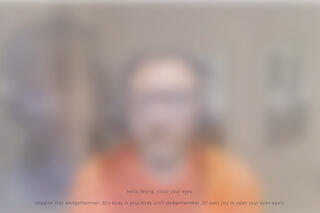
Residency for Digital Dance Creators
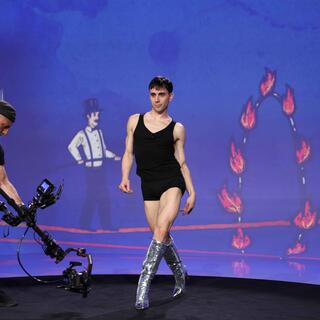
Carlo D’Abramo
Carlo is a dancer and content creator who uses his art and online presence to amplify the voices of the LGBTQIA+ community. Through his performances and videos, he strives to normalize aspects of identity and experience that are too often misunderstood or marginalized. His work highlights the complexity of queer lives – lives marked by both joy and pain, love and loneliness, triumph and discrimination, familial bonds and civil rights struggles, all within a political landscape that can be more hostile than protective.
From a young age, Carlo – like many individuals in minority communities – learned the harsh realities of rejection and the necessity of resilience. Yet, out of that pain, he has forged strength, courage, and moments of joy. His message is clear: queer lives are valid, valuable, and worthy, and everyone deserves equal opportunities.
Carlo views social media as a powerful platform for self-representation. He believes it allows marginalized communities to reclaim their narratives, challenge stereotypes, and present their truths unapologetically. Through his content, he not only expresses his own identity but also empowers others to do the same – creating visibility, fostering understanding, and helping to break down the barriers that have historically silenced so many.
„Every post, every video, every performance I share has the power to influence how others see us, to create new spaces of acceptance, and to normalize diversity. In my work, I want to continue promoting the idea that we are all free to be ourselves, without fear of judgment. Dancing on the streets, often in heels, I find that dance becomes a form of personal liberation, but also an act of defiance against society's expectations. For me, social media provides a platform to shape how I want to be seen, breaking conventions and creating new spaces for visibility and acceptance.“
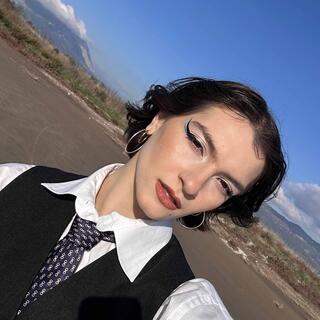
Fay Tzouma
For Fay movement has always been at the heart of her artistic practice. Trained in various styles – with a focus on contemporary dance and HipHop – she has performed in music videos, concerts, and live stage productions, while also diving into the worlds of physical theatre and contemporary performance. Alongside her dance work, Fay has also built experience as an actress in both theatre and film.
Social media became her platform of choice – an accessible, immediate space where she could share her ideas and connect directly with a wider audience. The instant feedback and interaction have played a key role in shaping and evolving her creative projects in real time. However, one frustrating reality has been the lack of recognition from many artistic institutions, which often don’t view work created for social media as being “serious” or “legitimate,” limiting opportunities for artists like her.
During the Covid-19 crisis, Fay expanded her creative language into videography, launching Fenilyy – an ongoing personal series of dance films that explore themes of womanhood through abstract, theatrical storytelling. She also collaborated with Andi Xhuma as a performer and camera operator in Big Plans, a year-long series of spontaneous daily dance videos, both of which were created specifically for and shared via social media.
„I plan to create a series of dance videos, involving fellow participants – an opportunity I rarely have in Athens due to time and space constraints. I'd also like to engage in others’ creative processes, as working with digital artists from such diverse disciplines is a rare experience. Lastly, I will begin early work on ‘She Who Bears’, a video project exploring belonging and displacement. The Residency for Digital Dance Creators represents not only a chance to gain new knowledge, but to be part of a community that values and uplifts digital work.“

Nea Landin
Nea is a Sweden-based artist combining choreography, visual arts and computer programming to explore human online presence and the potentials for performance and physical meetings in digital landscapes. Her work seeks to reimagine the central ideas of a movement-based practice from a purely physical medium into the digital.
Previous works include celestial bodies (2024), an interactive VR experience; desktop.dreams (2023), a live-streamed computer desktop performance; Mobilized – An Essay Pretending to Be a Game (2023), a participatory smartphone-based performance; and OTHER (2022), an intimate, computer-mediated meeting between two participants connecting from separate spaces.
„How can the body claim space in digital realities? What potentials for sensitivity, togetherness and poetry does this bring? I am developing a participatory choreographic experience within the browser, where movement unfolds through pop-up windows, prompts, and shifting attention. The interface acts as both stage and score, investigating how presence and movement are shaped by our screen-driven reality.“
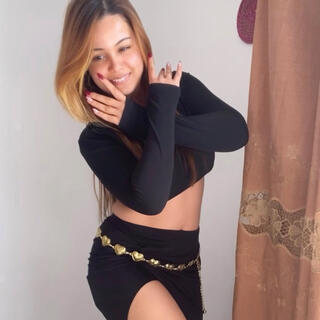
Riheb Aissaoui aka Ruby
Riheb Aissaoui, also known as Ruby, is a Tunisian dancer specializing in oriental dance (Raqs Sharqi). Through her digital content, she aims to highlight the diversity, history, and aesthetics of this dance form and make it accessible to an international audience. Her work encourages a more nuanced engagement with oriental dance and brings attention to its cultural roots.
When she first started her Instagram page, her intention was simply to document and share her dance practice. At the time, she did not anticipate that it would open up professional opportunities. Especially as a law student in a society where oriental dance still faces stigma, making her work public was not a straightforward decision. With the support of her mother and fiancé, she chose to move forward, which enabled her to connect with other dancers, teachers, and a wider audience.
„During the Residency for Digital Dance Creators, I’m particularly interested in exploring how traditional movement practices can be translated into digital formats—and what new forms of expression and engagement this might allow.“
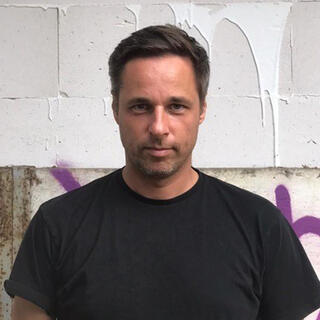
Sebastian Matthias
Sebastian Matthias is a choreographer and dance researcher. Since 2024 he has been Professor of Dance as Research Practice in Social Fields at the Frankfurt University for Applied Sciences and researches at the Institute for Sustainability at the GFZ in Potsdam. From 2022 to 2024 he was a post-doc at the Institute for Performative Practice, Art and Education at the Braunschweig University of Art and from 2019 - 2021 at the Institute Culture of the Metropolis at HafenCity University Hamburg. Since 2010, he has also presented his choreographic works internationally at independent production houses, festivals and theater institutions such as Theater Basel, Festival Tokyo and tanzhaus nrw. He studied dance at the Juilliard School in New York, dance studies at the Free University of Berlin and completed his doctorate on groove at HCU Hamburg. Since 2017, he has been researching TikTok as a dance scholar and artist in academic articles, performances and artistic interventions.
Mentor of the Residency
Focusing on Digital Dance Practices – A Residency at tanzhaus nrw
Central questions include: What kind of content do they create, and how does that shape their artistic identity? What future potential do they see in their digital practice? How does dance change when it is primarily created for digital platforms? If this work is recognized as art, what responsibilities come with these practices? What new aesthetic and social dynamics emerge through this process?
The residency also takes a critical look at the role of social media. These platforms are not only spaces where new dance practices emerge, but also environments shaped by economic interests, where algorithms amplify hate and misinformation, and where political influence becomes evident. Still, social media remains a key space for cultural negotiation. Dance and movement play a crucial role in these digital arenas—not only as forms of artistic expression but also as tools for political and social articulation. It is therefore essential to explore and help shape these developments artistically, rather than leaving them solely in the hands of corporations.
During the residency, participants will have access to the studios at tanzhaus nrw, providing space to physically explore their ideas and deepen their artistic practice. They can also take part in the academy’s course offerings to discover new dance styles and expand their movement vocabulary.
As a dance production house, tanzhaus nrw is also engaging with the question of how dance practices developed online can open up new ways of reaching audiences. Dance on social media not only changes how dance is produced and curated but also how it is experienced – whether on a smartphone, on the go, or at home. What new formats can an institution create to make these dance forms more accessible?
The residency is accompanied by choreographer and dance scholar Sebastian Matthias and tanzhaus nrw dramaturg Philipp Schaus, who will serve as mentors and support the reflection process. The concept for the Residency for Digital Dance Creators emerged from the collaboration between Arne Siebenmorgen, Brig Huezo, Caspar Weimann, and Philipp Schaus during the Post Internet Dances research lab, artistically led by Sebastian Matthias, which took place at tanzhaus nrw from fall 2022 to early 2023. In ongoing dialogue, Matthias and Schaus developed the idea into a residency concept.
